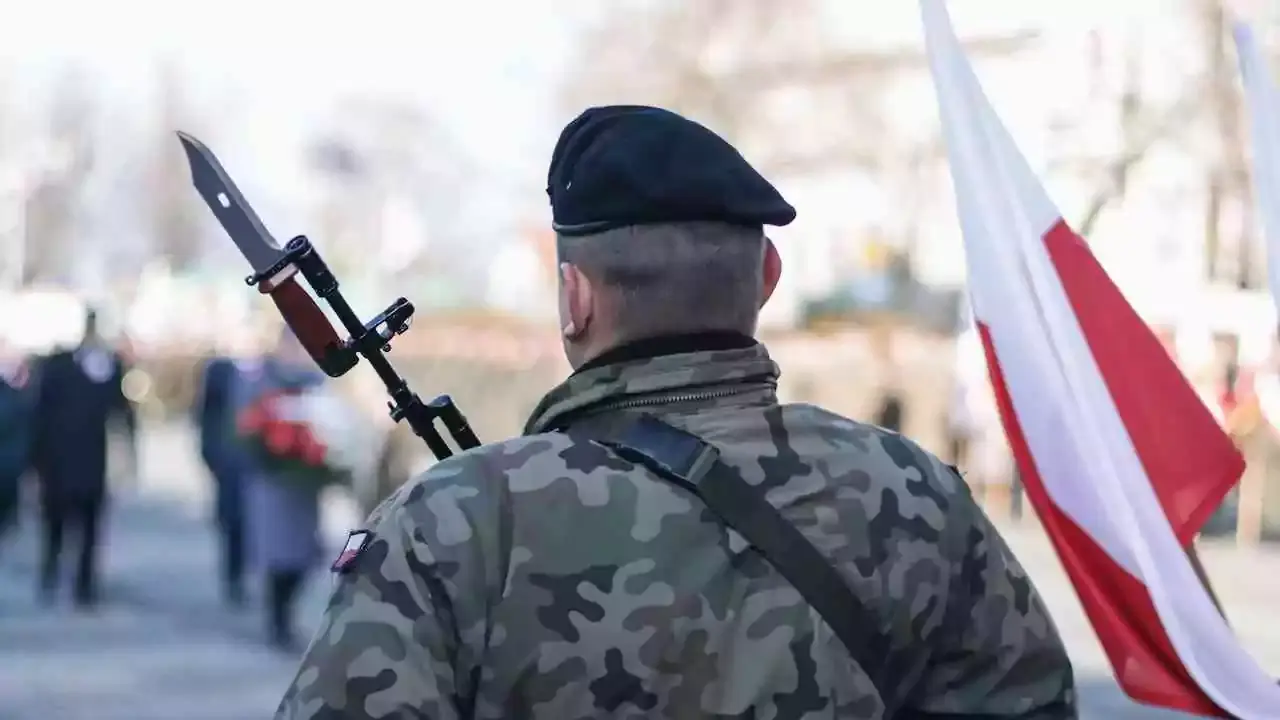Science
Homo sapiens and a Mysterious Human Species: We Have Their Genes
27 June 2025

The place where we grow up leaves its mark on us, whether we like it or not. We have our birthplace, where we often remain for life. Sometimes, we choose where to put down roots. By staying in one space, we form a community, a group of people walking the same streets and speaking the same language. Regardless of our knowledge of our country’s history or identification with its founding myths, legends, heroes, culture, and traditions, all these are parts of our identity, assigned to us, knowingly or not.
Patriotism is not as ancient as it might seem. It first appeared among members of the American Whig Party during the Enlightenment, aiming to break free from British rule. Similarly, Dutch patriots sought reforms across the ocean. In Poland, the Patriotic Party, or the reform camp, was an informal political group during the Great Sejm, striving for independence from foreign influences and strengthening the Polish raison d’état.
All these groups shared one common trait: acting for their nation’s interests. But does such a stance still make sense in the 21st century?
Our environment hugely influences us, shaping our “self.” Who we are is never solely the result of our actions and choices. Our identity is a combination of personality type, temperament, and environmental pressures.
Growing up in the fundamental social unit of the family, we initially adopt the values, religious beliefs, and sometimes political views of our parents. Reaching adolescence, we enter a critical phase of experimenting and questioning what we have so far taken for granted. Learning through experience, we conduct experiments like scientists in a lab. The values given to us are transformed into hypotheses, which we confirm or reject. Over the years, we create our own set of truths and beliefs, the axis of our functioning, reaching maturity and readiness to pass on our principles.
Previously driven by colonialism, imperialism, and later by the Industrial Revolution and the development of transportation, particularly aviation, globalization is now accelerated by the revolution in communication. Today, the world is closer than ever to becoming a literal “global village.” International cooperation has never been easier. The COVID-19 pandemic, forcing remote work models, has dispelled efficiency concerns, helping many companies survive and proving that physical co-location is not essential for effective collaboration.
A few decades ago, the phenomenon of McDonaldization made Western societies’ lifestyles strikingly similar. We dress alike, eat the same food. Major world cities share similar appearances and transport systems. Besides original national dishes, every city offers fast-food restaurants serving globally popular meals. English has practically become the world’s lingua franca.
This reduction in physical distance between people is undoubtedly a significant value. It erases limitations that often bred differences, fear, and, consequently, mutual aggression.

The fall of the Roman Empire led to the emergence of stable national states in Europe. The previous unity under the emperor fragmented, with each part eventually seeking the fundamental today right of self-determination. Borders arose, along with differing interests and power struggles. Until 1945, Europe was almost constantly engulfed in conflicts, manifestations of human weakness, pride, and sometimes mere animosity between influential families.
Post-World War II, the world realized it could no longer afford another major conflict, especially with the looming threat of weapons of mass destruction. In Europe, French Prime Minister Robert Schumann’s concept, understanding human frailties, aimed to make conflict unprofitable by creating a sense of common interest.
Over seventy years later, European integration has deeply penetrated the identity of the continent’s inhabitants. The period since 1945 marks the longest in history without global conflict and with continuous economic growth. Western societies have entered an era of unprecedented prosperity. However, as the threat diminishes, European morale seems to decline.
We recommend: The Elusive Pursuit of Happiness: Which Countries Offer the Best Life?
The USA, often credited with fostering patriotic attitudes, presents a completely different reality. Its founding myth revolves around a heroic struggle and the emergence of a new state, based on freedom and openness. Americans maintain their love for their country through shared admiration of its power and pride in living in an undefeated nation.
European patriotism, however, is based on the sense of independence and diversity of nations. The highest sacrifices were made by Poles, Britons, French, and Russians in fighting Germany during World War II. Poland’s 123 years without statehood yet maintaining a nearly intact national identity through traditions, art development, and fighting for independence, is a real phenomenon.
Today, it is hard to find comparable national pride in Europe as in the USA. French and Belgians open their cities to waves of immigrants, citing humanitarianism, but often facing violations of fundamental rights like security and inviolability. More young Poles are ashamed of their history and Christian civilizational roots, preferring to define a patriot as a taxpayer rather than one declaring love for their homeland. As the generation remembering the absence of freedom fades, so does the need to anchor identity in national structures, with patriotic acts requiring a created sense of threat.
The noble sentiment of patriotism is cynically exploited by those driven by self-interest, where the sole value seems to be the struggle for power and influence. Through deceit and manipulation, they create an atmosphere of threat, attributing an invader’s mentality to other countries, and emphasizing real dangers, not to protect citizens’ interests, but to divide society according to the “divide and rule” principle.
Between total indifference and loss in one’s self-perception and hatred for diversity and unjustified sense of superiority lies a middle ground. This less distinct path seems overlooked and thus less attractive. In response to Europe’s unification, a resurgence of nationalist movements is noticeable in the public sphere. They grow in strength, masquerading as patriotism but having little in common with it. Their disdain, distrust, and aggression towards other nations, emphasizing historical grievances, and attempts to build a national myth based on a sense of superiority, evoke dark memories of events no one wishes to witness again. Voices in the public sphere increasingly argue for overturning the existing order to establish a new one. This is the definition of revolution. Has the world seen one without casualties?
Politics has its own rules, and while miracles happen, they are not as grand as envisioning careerists ceasing to exploit social sentiments for their goals. Hence, wisdom is needed to recognize manipulation and distinguish demagoguery from altruism. Achieving this requires robust, structured education, immune to political changes and established beyond divisions, so it is not a hostage or property of the ruling camp. Young people’s education should focus on nurturing open minds and solid identities, enabling individuals to say, “I know where I come from, I know where I am going.”